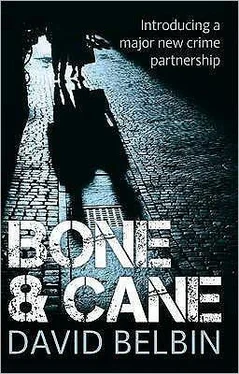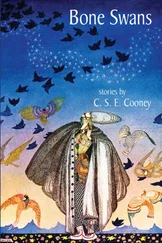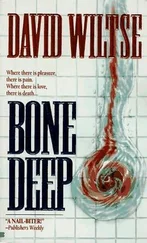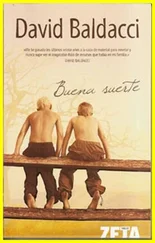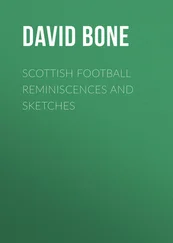Polly stood abruptly and went to the library window.
‘My taxi’s here.’
‘Let me walk you out.’
‘If you have to.’
Sarah tried to make conversation as they walked, asking about the Shanks children, but the sister wasn’t having it.
‘That slimy Tory MP,’ she said, apropos of nothing. ‘How could you?’
Sarah gave the answer she’d given a hundred times in the last three weeks. ‘It was a dinner about work. The paper made up the rest.’
‘Pull the other one. What kind of woman are you, standing up for murderers and adulterers?’
Sarah didn’t reply, transfixed by the sight of the guy getting out of Polly’s taxi. It couldn’t be who she thought it was.
Polly, not expecting a reply from Sarah, left the building, went straight up to the driver. The cabby stubbed out the cigarette he’d just lit. From this distance, the taxi driver was a dead ringer for Sarah’s first love, Nick Cane, aged by the twelve years since she’d seen him last.
When Sarah got in from the surgery, she tried to restore her spirits with a long bath. She opened the half bottle of champagne she kept on standby in the fridge. But drink didn’t help. When she wasn’t on a guilt trip about what Ed Clark might do now that he was out, she was thinking about the man driving the taxi.
She’d got off with Nick after a Labour Club meeting during their second year at uni. He was the best-looking bloke she’d ever been out with. The smartest, too. That evening, he’d actually come to resign from the party. Which dispute was it that alienated him? She didn’t recall. He hadn’t wanted to let his membership lapse. He’d wanted to tear up his card at a meeting. But when he’d got there, Sarah was the only other person who’d turned up. So they talked.
She’d seen him around before. He had a strong chin with a small dimple in the centre, warm eyes and dark, thick hair. Nick wasn’t what she thought of as her type – she’d been drawn to more earnest men until she discovered how quickly they bored her. Nick liked a drink and a smoke, but he had a serious side and was more pragmatic than her. That first night they talked about Sarah running for the union presidency. The time might be right for a real socialist, Nick reckoned. Last year, the election had been won by a joke candidate who, when he became president, turned into a bureaucrat.
Nick helped Sarah to write her manifesto, advised her to grow her hair before having any photos taken. ‘Blokes will vote for a woman they fancy. And they fancy women with long hair more than women with short hair. Proven fact.’ She was twenty years old and it was her first election. He introduced her to dope, which she’d been sniffy about. The ‘comrades’ saw it as a decadent bourgeois habit. It relaxed her.
The union presidency was her first election victory. By then, she was living in a shared house with Nick. She won by a ten per cent margin over the Anarchist candidate. That summer, she and Nick hitched around Europe together. They visited her father, who was living in Spain. She took him to meet her paternal grandfather, Sir Hugh. Well into his seventies, he had retired from Parliament, but was still on top form. He entertained them with stories of suppressed scandals from the Wilson years, when he had been a cabinet minister. Grandad also had scathing anecdotes about the turncoats who had recently defected from Labour to form the Social Democrats. The SDP went on to split the anti-Tory vote, letting the bastards back in by a landslide at the next general election, in 1983.
By then, Sarah was in her final year, after the interruption of a year spent as Union President. Nick was doing teacher training. She knocked herself out to get a first, while Nick found his course much more demanding than his degree had been. Nevertheless, the two of them made time to work for Labour in the general election. They were in love with the struggle against Thatcher, as well as each other.
That year, they considered getting married, but decided against. Marriage was a ‘bourgeois institution’. Nick was less convinced of this argument than her.
‘We might change our mind when we want kids,’ he said. Sarah thought it best not to mention that she had no intention of ever having children.
But she couldn’t hide her decision to join the police. They talked it over endlessly. Not rows, as such. Nick knew where she was coming from, understood that she wanted to make a difference, but he thought she was making a big mistake. Turned out he was right, but it had taken Sarah three years to work it out. You didn’t join the police because you were interested in justice. That was why you went into politics. You joined the police because you were interested in keeping order. Back then, she thought Nick was being naïve, that he was prejudiced against the police because of his fondness for soft drugs. But she thought that they were solid.
Nick started his first teaching job and she left for police training in Henley. He rented a flat and she visited most weekends. At first, Nick was overwhelmed by his job. He liked to get smashed out of his face on Friday and Saturday nights to make up for the fifteen-hour days he worked the rest of the week. Sarah had little patience for this behaviour. Nick showed little interest in her new career.
They had niggling arguments rather than big rows. For instance, he never came to her police accommodation. Then he did, once. That awful weekend, when they were both drunk on bad wine, she tried to get a rise out of him by saying she was tempted to see someone else. He replied that he was, too. Unlike her, he seemed to have someone particular in mind
‘Maybe you should go for it,’ he said.
‘You’d like us to have an open relationship, would you?’ she asked. Open marriages were still fashionable at the time. Lefties who wanted to screw around came up with ideological reasons to do so. There was a terrible meanness in the air: another facet of Thatcherism.
‘I don’t know what I’d like us to have,’ he mumbled.
‘Me neither.’
‘Why don’t we see how it goes?’
‘Okay, I guess.’
And that was it. They fucked up a great thing by casually giving each other permission to screw around. Sarah shagged a sergeant on her training course. Nick had a brief affair with Sarah’s best friend in Nottingham, Louise. This came out in a phone conversation, the memory of which Sarah had since done her best to suppress. As soon as they told each other, each knew that it was over, but they never formally split up. They just stopped calling. Louise stopped calling too, so Sarah no longer had any reason to visit Nottingham.
He did write to her, later that year, when Grandad died. It was a warm letter, but with no news, no suggestion of a meeting, no return address. He’d probably have written when her father died too, but that didn’t get into the papers. Anyway, he’d used Mum’s address, and she’d moved by then. He wouldn’t know where to find her.
The last time she saw Nick was the following year, the summer of 1985, when she was a fast track probationer. Sarah was on duty at a march in support of the miners’ strike. It was in Leicester. Nick was there, with the Nottingham contingent, a pretty Asian girl by his side. Sarah saw him, but prayed he hadn’t seen her.
When Sarah was putting herself forward for selection, she was asked about her view of the strike. She’d been out of the force for years, doing different short term contract jobs, mostly in London, looking for a seat to stand in. Having been the president of the local university student union didn’t hinder her, but her university dates didn’t overlap the strike. Nobody at the selection conference brought up the police connection and neither did Sarah. She used phrases like ‘tactically outmanoeuvred’ and ‘the fatal failure to hold a democratic ballot’ and got by.
Читать дальше
